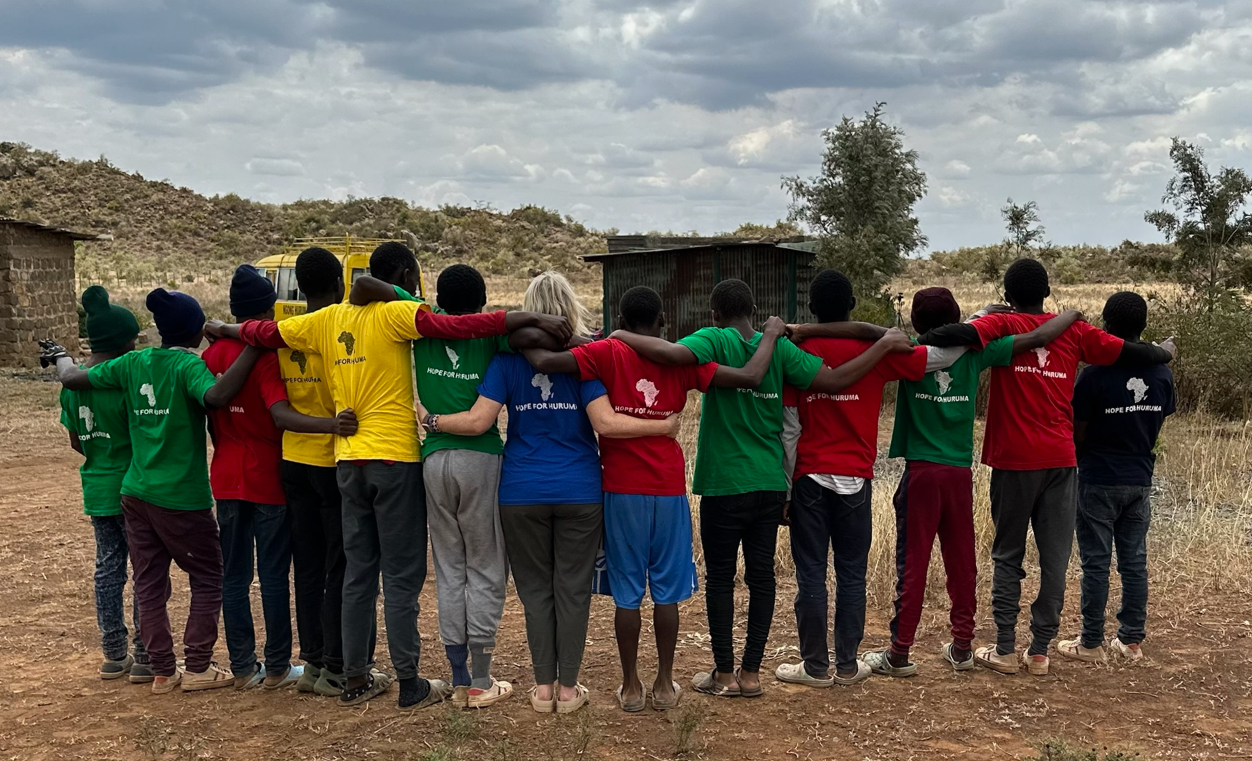
growing gatune farm
Join arms with us!
Donate today to develop farmland to provide more nutritious food to Huruma Children’s Home while decreasing costs and enabling them to become more self-sustaining.
There are two ways to help grow Huruma’s farm at Gatune:
Learn more about the project below.
Years ago, as Huruma Children’s Home became a haven for an increasing number of vulnerable Kenyan children, Mama Zipporah, the home’s founder, began to dream of buying land where she could produce crops to feed her ever-growing flock.
Over the last 15 years, great progress has been made!
2009 Mama Zipporah was gifted 5 acres of farmland at a village called Gatune to grow food for Huruma’s children.
2010 Mama Zipporah visited the remote farmland for the first time.
2011 The first crops of maize and beans were planted at the farm.
2012 Mama Zipporah purchased 5 additional acres of adjacent land. A team from the U.S. based non-profit Feeding Mouths Filling Minds (FMFM) visited Huruma to help with the small farm at the home. During that visit they traveled with Mama to the land at Gatune and began to help her shape her future plans for it.
2015 Mama Zipporah purchased 5 more acres of land and worked with FMFM to install a rain catchment system to irrigate the crops. This increased the size of the plot they are able to farm significantly.
2023 A family from the U.S. agreed to support the digging of a borehole well at Gatune. Living space was constructed living space for a handful of newly graduated young adults from Huruma, providing homes and full-time work during their transition year (between high school graduation and post-secondary education or employment).
2024 Drilling of the borehole well was successful!
Mama Zipporah’s dreams are contagious! So what’s next?
Here are some of the dreams Hope for Huruma has partnered with Feeding Mouths Filling Minds to fulfill.
1. Better meet the nutritional needs of Huruma’s children by expanding the variety of crops farmed at Gatune.
2. Create sustainable food sources by growing enough maize and beans each year to reduce Huruma’s spending on those items to $0.
3. Enable Huruma Children’s Home to be increasingly self-supporting through generating revenue when excess crops are sold.
4. Provide jobs for students during the year between high school graduation and post-secondary education or employment depending on their path.
5. Establish a certificate program (think associates degree equivalent in the U.S.) to train students in agriculture, entrepreneurship, etc.
6. Provide training for women in the community to enable them to improve their agricultural endeavors and better provide for their families.
